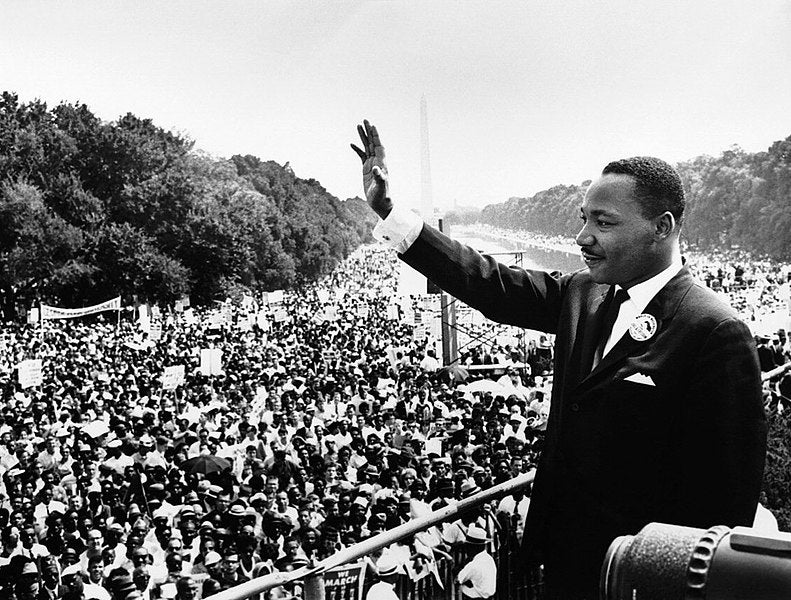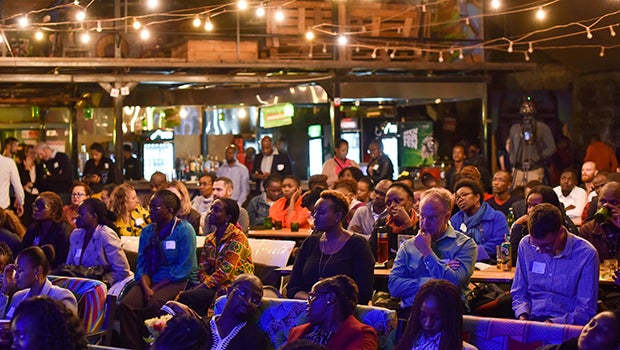
On Monday, January 15th, our country will pause to observe Martin Luther King Jr. Day. While many Americans will simply take the day off work, this is a chance to remember a great man’s legacy and to consider the ways that faith, translated into action, can make our communities better.
There will be no shortage of chances to reflect. The Aspen Institute hosted In Conversation with Anne Mosle: Honoring Dr. Martin Luther King Jr. featuring Sen. Rev. Raphael Warnock (who has held the pulpit once held by Rev. Dr. King) and King biographer Jonathan Eig. The National Museum of African American History and Culture will be holding performances honoring and reinterpreting Dr. King’s life and work. The President and Vice-President will observe and participate in a day of service, honoring a tradition started by President Barack Obama, and countless other observations will occur throughout the country—acts of worship, acts of service, reflections, and more.
On this day—his real birthday this year!—we reflect on the many dreams Rev. Dr. King had for our nation. While his work to desegregate our nation and bring civil rights to all Americans is well known, his mission went well beyond that. Rev. Dr. King—in a prophetic tradition stretching back to the Hebrew Bible—prayed and worked to “let justice roll down like waters, and righteousness like an ever-flowing stream” (Amos 5:24). He worked to end the exploitation of the poor, supporting workers struggling to earn a living wage. Rev. Dr. King was murdered as he visited Memphis to encourage striking sanitation workers.
We can hold both our gratitude for the prophetic work Rev. Dr. King accomplished in his too-short time on Earth and a critical lens on the deep work that America still has to endeavor in order to live to King’s vision of the Beloved Community. Racial equity remains a far-off goal in so many ways. The wealth gap, the education gap, the health gap, and other measures of well-being show how much work remains to be done. While we can serve our communities as individuals, we need systemic change in our society.
Rev. Dr. King’s work led to several major pieces of legislation, including the Civil Rights Act of 1964 and the Voting Rights Act of 1965. As we enter into a major election year—with the presidency, the House, a third of the Senate, and numerous local and state races running concurrently—we must use these hard-won opportunities to make a difference in our communities and recommit to their importance to our national life.
For those of us who are people of faith, Rev. Dr. King remains a wonderful example of drawing inspiration and moral authority from our religious traditions, yet turning outward and working across dividing lines to serve others and work for the good of all. Here at the Aspen Institute Religion and Society Program, in March, we are convening a conversation with our Racial Justice and Religion Collective and congressional leaders around the intersection of faith and politics.
What is motivating and driving me this year is Rev. Dr. King’s reminder,
“The ultimate measure of a [person] is not where [one] stands in moments of comfort and convenience, but where [one] stands at times of challenge and controversy. The true neighbor will risk [one’s] position, [one’s] prestige, and even [one’s] life for the welfare of others.”
Where are we standing? What are we risking? How am I neighboring in and among the Beloved Community?

